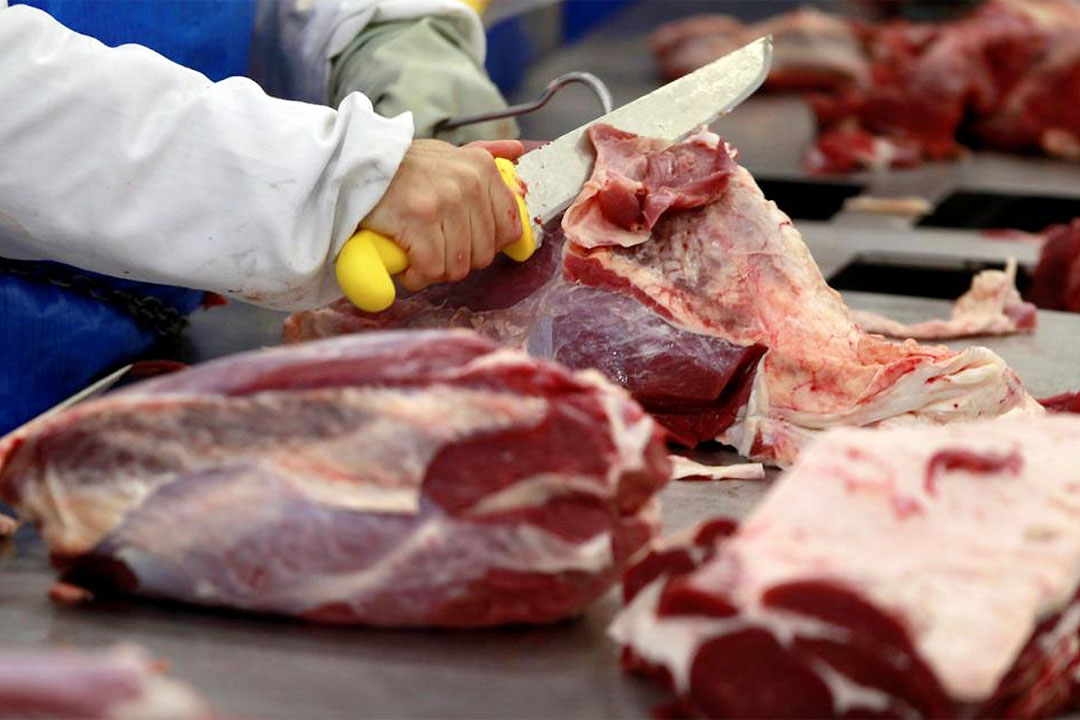
By Kyle Aristophere T. Atienza, Reporter
BRAZIL’S meat industry will strive to expand in the Philippines via a broader range of product offerings, while sharing best practices with domestic companies, the Brazilian embassy said.
The product line expansion is expected to take the form of more types of cuts of meat and processed products exported to the Philippines, to better meet “the specific preferences of the Filipino market, including convenience and value-added products,” an embassy spokesman told BusinessWorld in response to queries from the newspaper.
It said Brazil will pursue technical-exchange programs with Philippine health authorities and research institutions to share “knowledge and best practices in animal health and food safety.”
“Brazil reaffirms its commitment to the stable, safe, and competitive supply of animal protein to the Philippines, contributing to food security and economic development of both countries,” the embassy said.
Brazil is the largest supplier of chicken, pork, and beef to the Philippines.
Its meat industry operates under “one of the most rigorous health and traceability systems in the world,” exporting to more than 150 countries, the embassy said.
In 2024, the Philippines was the fifth-largest destination for Brazilian beef. The Philippines imported 92,200 metric tons or 3.19% of Brazil’s total exports.
“This significant volume reflects the growing confidence of the Philippine market in the quality and safety of Brazilian beef, while also demonstrating the growth potential of this strategic commercial partnership,” the embassy said.
“Brazil maintains a consolidated position as a global leader in beef exports, the result of decades of investment in genetic improvement, animal health, traceability, and increasingly efficient and sustainable production systems,” it added.
The World Organisation for Animal Health (WOAH) in June recognized Brazil as free from foot-and-mouth disease (FMD) without vaccination.
In the same month, WOAH recognized Brazil as free from Highly-Pathogenic Avian Influenza (HPAI). The Philippines last week lifted a ban it imposed on Brazilian poultry following a bird flu outbreak that killed almost 7,400 birds in Rio Grande do Sul.
The Philippines was the 6th largest market for Brazilian poultry in 2024, with its imports rising 7% to 234,861 MT.
“This volume represents 4.55% of total Brazilian poultry exports, highlighting the relevance of the Philippine market,” the embassy said.
“The Brazil-Philippines partnership in the poultry sector has potential for expansion in the coming years, with opportunities for product diversification and increased volumes, contributing to Philippine food security with quality protein at competitive prices,” it added.
In 2024, the Philippines surpassed China and became the main destination for Brazilian pork exports.
The embassy said Brazil is present in 157 markets for beef, 151 for poultry, and 94 for pork.
Agriculture Secretary Francisco Tiu Laurel, Jr. on Friday said the Department of Agriculture will focus on addressing supply gaps in chicken, pork, and fish to help contain food inflation.
Philippine inflation rose to 1.4% in June from six-year low of 1.3% in May, primarily due to rising housing and utility costs as well as higher education expenses.
Mr. Laurel said while food inflation continued to ease — slowing to just 0.1% in June from 0.7% in May and 6.5% in June 2024, “this was due largely driven by falling prices of rice, vegetables, and bananas.“
A closer look at the data, however, showed that the top five contributors to the 1.4% inflation in June were pork and chicken, up 13% and 10.4%, respectively, which together added 0.4 percentage points to headline inflation, Mr. Laurel said.
“Few countries in the world can match the resilience of Brazil’s meat industry. Despite global challenges such as increasing input costs and health risks, Brazil continues to deliver stability, volume, and quality,” the embassy said.
“This is due to our diverse production regions, continuous investment in biosecurity and innovation, and a strong commitment to animal health and food safety,” it added.